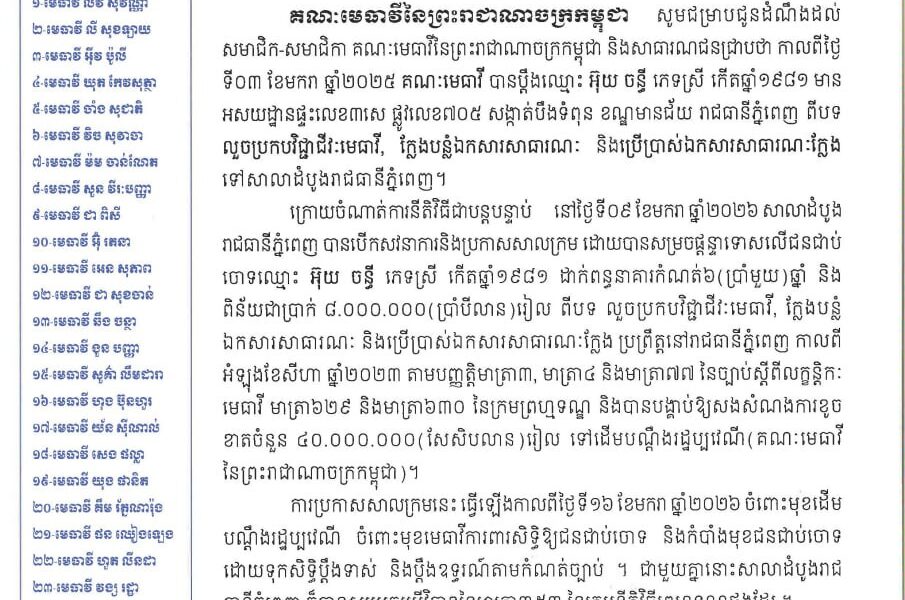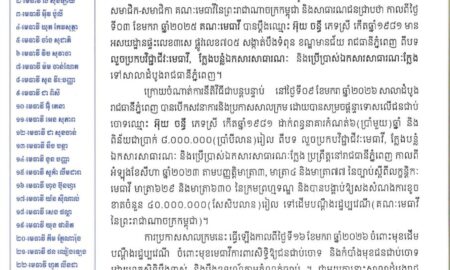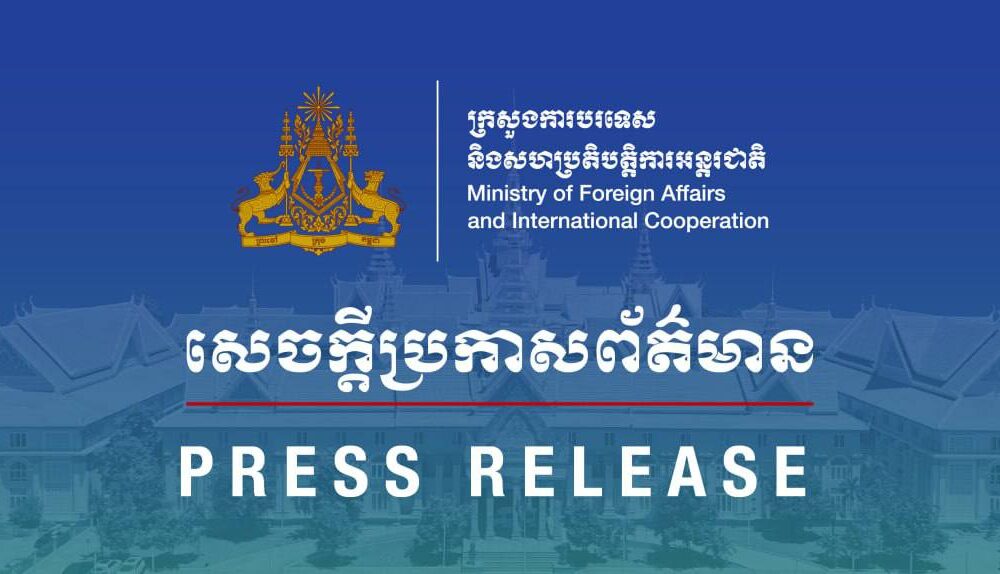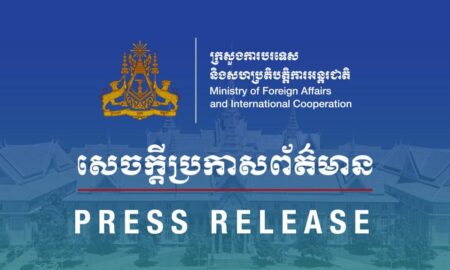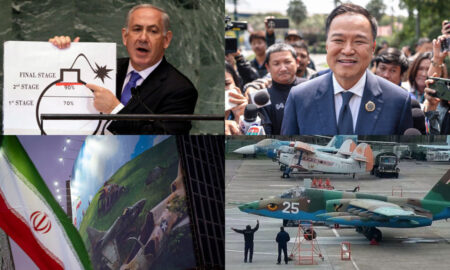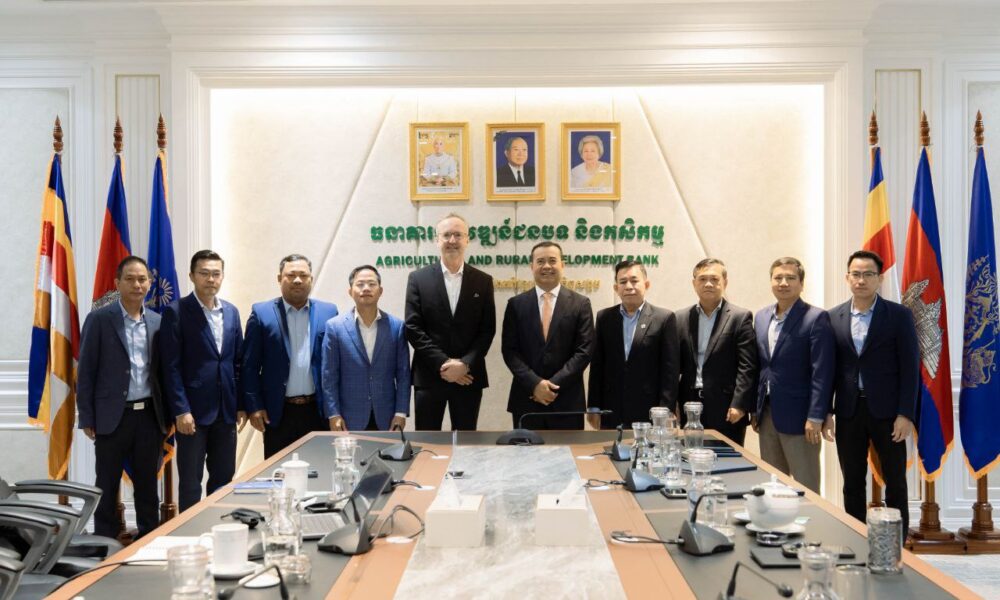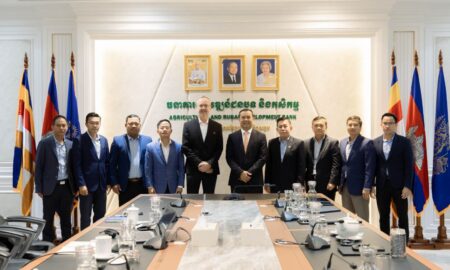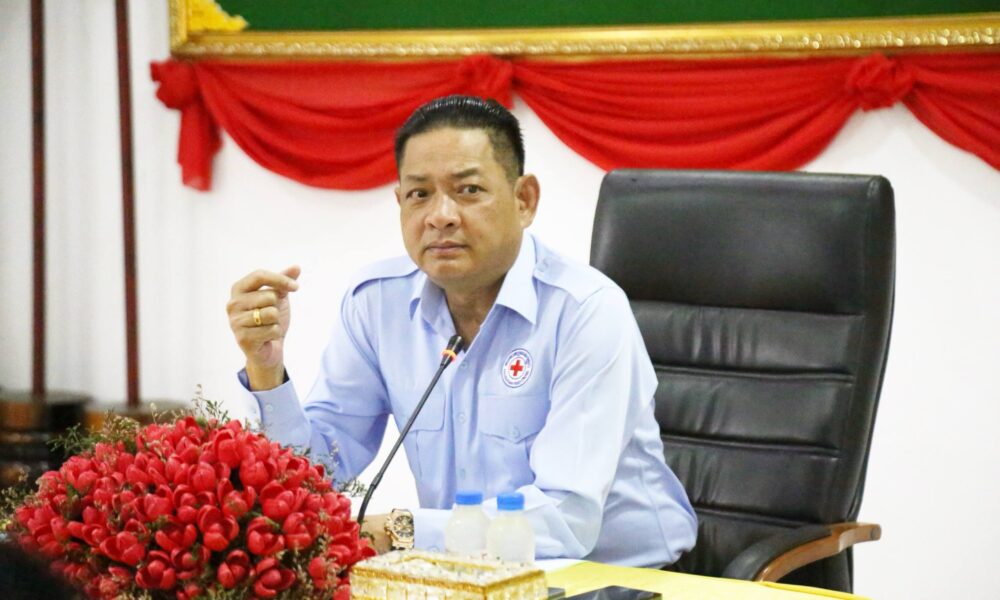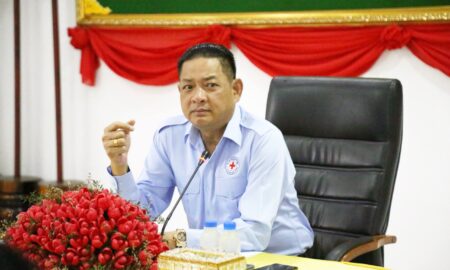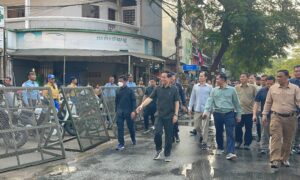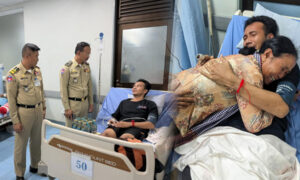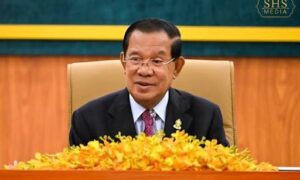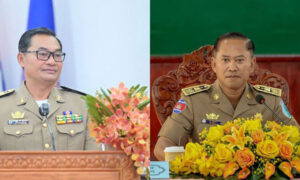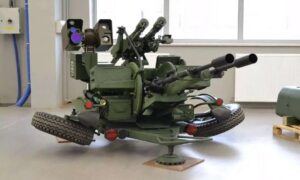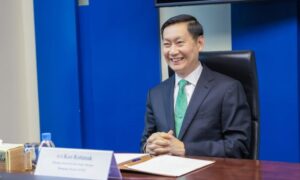A series of vital steps taken by the central authorities have enabled Hong Kong to achieve a major transition from chaos to order, and usher in a new chapter of good governance.
HONG KONG, June 26 (Xinhua) — With the solid support of the motherland, Hong Kong has defused risks, weathered challenges and maintained prosperity and stability over the past 25 years, demonstrating that the “one country, two systems” principle has stood the test of practice and time.
Since its return to the motherland in 1997, Hong Kong has progressed and prospered alongside the rest of the country, with Hong Kong compatriots and people in the mainland standing in solidarity and advancing together.
HELPING HK TO TACKLE CHALLENGES
Recalling the turmoil of 2019, Kenneth Fok Kai-kong, a member of the Legislative Council of the Hong Kong Special Administrative Region (HKSAR), said that he could not imagine what Hong Kong would be like without the help of the country.
A series of vital steps taken by the central authorities have enabled Hong Kong to achieve a major transition from chaos to order, and usher in a new chapter of good governance.
These measures included the enactment of the national security law in Hong Kong, the improvement of Hong Kong’s electoral system, and the implementation of the “patriots administering Hong Kong” principle.
The enforcement of the national security law in Hong Kong has brought stability back to society, and the improved electoral system has enabled those who truly care about Hong Kong to contribute to its development, Fok said.
For example, since the implementation of the national security law in Hong Kong, funds raised through initial public offerings in Hong Kong have exceeded 650 billion Hong Kong dollars (82.81 billion U.S. dollars), an increase of over 30 percent compared with the same period before the law was enforced. The average daily turnover of Hong Kong stocks has jumped almost 60 percent from the 12-month period preceding the law’s enforcement, reaching 150 billion Hong Kong dollars (19.11 billion U.S. dollars).
In the past 25 years, Hong Kong has faced many challenges, including the Asian financial crisis, the SARS epidemic, the international financial crisis and the COVID-19 pandemic. Whenever Hong Kong encounters difficulties, the motherland stands ready to offer its utmost support.
Deeming the country’s support as Hong Kong’s greatest strength in solving various problems, the incoming sixth-term chief executive of the HKSAR John Lee said that Hong Kong could not have overcome challenges and achieved progress without the backing of the motherland.
BACKING HK TO BOOST DEVELOPMENT
A growing number of young people from Hong Kong are turning to the mainland for entrepreneurial prospects, as the development of the Guangdong-Hong Kong-Macao Greater Bay Area has brought about new opportunities.
Mark Mak Hin-yu is among such young Hong Kong entrepreneurs. He is the co-founder of a Hong Kong-headquartered company that specializes in developing robotic products. They have transferred part of their operations, including hardware assembly and technical testing, to the mainland.
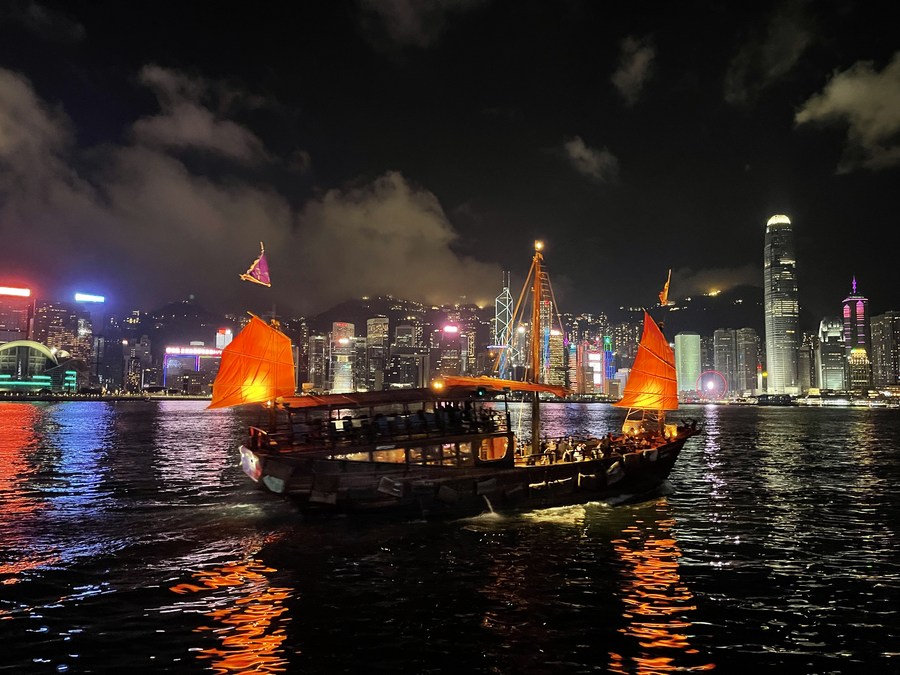
One of the most open regions that boast the strongest economic vitality in China, the Greater Bay Area plays a critical role in driving the country’s economic development with its distinctive geographical advantages and strengths in innovation and cooperation.
The Chinese enterprises in Hong Kong have taken the lead in participating in joint construction of the Belt and Road, spurring the flow of production factors including talent, capital, goods, technology, information in Hong Kong, improving its industrial structure and boosting its economic prosperity, said Yim Kong, managing director of China Merchants Port Holdings Company Limited.
With the support of the motherland, Hong Kong has consolidated its status as an international financial center over the past 25 years. Among all listed firms in Hong Kong, more than half are from the mainland, contributing about 80 percent of market capitalization. Hong Kong has become the world’s largest offshore renminbi (RMB) business center, handling more than 70 percent of global offshore RMB payments.
Hong Kong has maintained stability and prosperity, HKSAR Chief Executive Carrie Lam said, adding that it has strengthened its status as an international financial, shipping and trade center and seen vigorous development in innovation and technology, as well as in culture and arts.
“The practice of the ‘one country, two systems’ principle in Hong Kong over the past 25 years has proved successful,” she said.
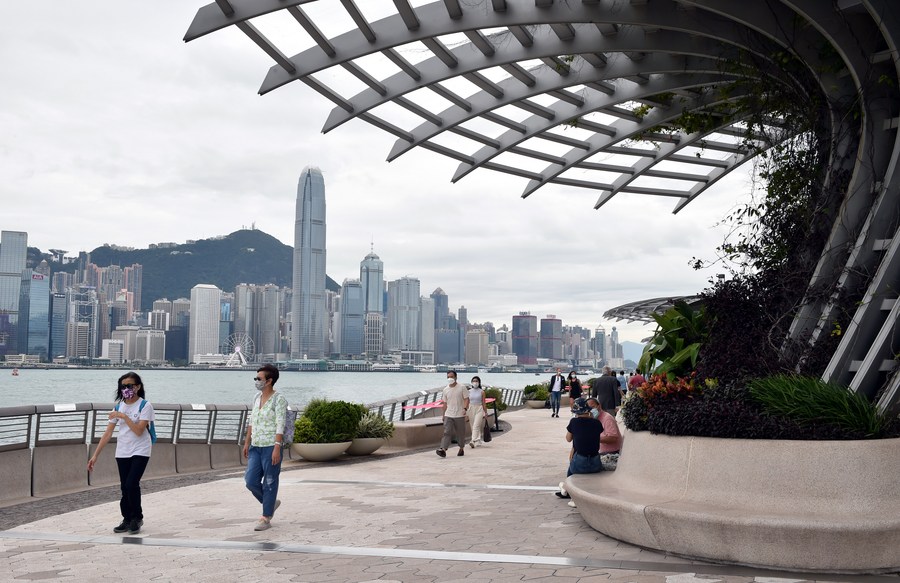
ENCOURAGING HK TO EMBRACE OPPORTUNITIES
Expressing her gratitude to the central government, a Hong Kong girl made a handwritten thank-you note in Chinese.
She expressed her feeling in a simple way with the words — “Thanks to the motherland for developing vaccines to protect us. My whole family has been vaccinated and has received COVID-19 prevention kits in time.”
During the fifth wave of COVID-19 infections in Hong Kong earlier this year, the central government extended speedy support for Hong Kong’s fight against the virus. It helped build temporary hospitals in the shortest possible time, dispatched teams of medical experts, offered a large quantity of anti-epidemic supplies, and ensured the supply of daily necessities.
Over the past few years, a series of policies have been introduced to make life more convenient for Hong Kong people living and working in the mainland. Since September 2018, eligible people from Hong Kong have been able to apply for residence permits, which grant them access to the rights to work, social security and housing provident fund, as well as public services including education, healthcare, cultural and sports services.
Notably, the country’s 14th Five-Year Plan (2021-2025) supports Hong Kong in developing itself into an international center for innovation and technology, a center in the Asia-Pacific region for international legal and dispute resolution services, a regional center for intellectual property trade, and a center for cultural and art exchanges with other countries.
The incoming HKSAR chief executive Lee said that Hong Kong, while forging ahead, should give full play to its own advantages, enhance its international competitiveness, and better integrate into the country’s overall development. ■



